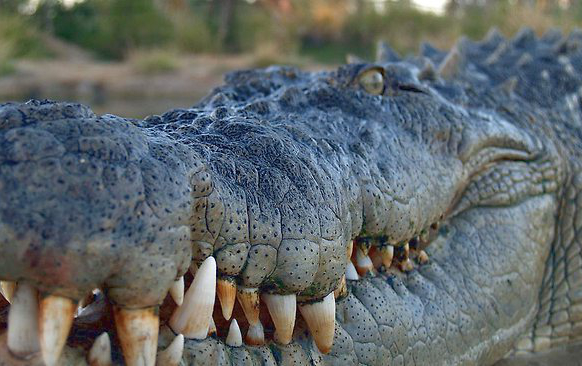Learning leads croc response
 Education appears to be more effective than culling crocs for public safety in the NT.
Education appears to be more effective than culling crocs for public safety in the NT.
Research shows that culling saltwater crocodiles in the Northern Territory (NT) is not the most effective solution for reducing attacks.
The study, conducted by Charles Darwin University (CDU), found that alternative measures such as education, problem animal removal, and exclusion zones are far more successful in mitigating the risk of crocodile attacks.
Researchers analysed 50 years of data on crocodile and human densities in the NT, and showed that culling crocodiles to reduce their numbers is neither cost-effective nor efficient.
Between 1979 and 2022, there were 76 crocodile attacks, with 30 per cent of these being fatal.
Despite a rise in both crocodile and human populations since 2009, attack rates have stabilised, even decreasing by 10 per cent over the past decade.
Lead author Dr Cameron Baker, from CDU’s Research Institute for the Environment and Livelihoods, pointed out that the decrease in attacks coincided with public behavioural changes and government programs aimed at education and removing problem crocodiles. “Our models predicted that the NT crocodile population would have to be reduced by as much as 90 per cent to reduce the crocodile attack frequency by one attack per year,” he said.
Dr Baker argued that culling to such an extreme level would drive crocodiles back to the brink of endangerment.
Additionally, the cost of culling, at approximately $975 per crocodile, would amount to $87.75 million to reduce the population by 90 per cent.
In comparison, the ‘Be Crocwise’ education campaign launched in 2009, costing only $250,000, has led to a 10 per cent drop in attacks.
The study also found that most attacks occur when people ignore safety advice and engage in risky behaviour near crocodile habitats.
“Between 2011 and 2021, humans were 363 times more likely to be severely injured or killed in a motor vehicle accident than by a crocodile in the NT,” Dr Baker said.
Professor Hamish Campbell, who led the study, emphasised the importance of evidence-based management.
“Crocodiles are a danger to humans in North Australia, and this risk needs to be managed. The funds available for crocodile management are limited, and we need to spend these in the most effective manner,” he said.
The findings also have broader implications, with Dr Vinay Udyawer from the Australian Institute of Marine Science noting that the results “highlight the general ineffectiveness of culling as a primary mitigation tool” and can apply to managing other predator species such as sharks.
The research is published in the journal People and Nature.








 Print
Print